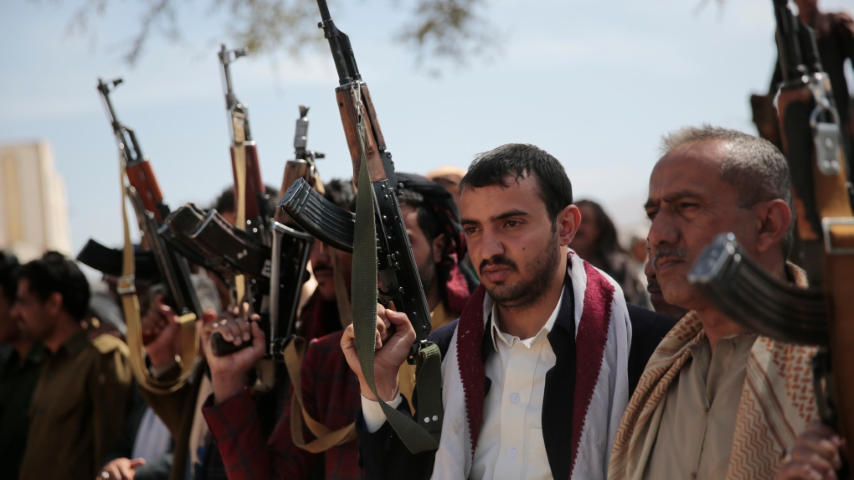
In Sanaa, Yemen, armed Houthi fighters participate in the funeral march of fellow Houthi rebel fighters who lost their lives in recent clashes with the forces of Yemen's internationally recognized government. This event occurred on Wednesday, November 24, 2021. The photo was taken by Hani Mohammed and is credited to the Associated Press.
In a significant development, Yemen's Houthi rebels carried out a substantial attack on the Red Sea, launching a barrage of drones and missiles targeting shipping. This forced the U.S. and British navies into a major naval engagement to intercept the projectiles. Fortunately, no immediate damage was reported.
The attack occurred off the Yemeni port cities of Hodeida and Mokha, with reports of ships witnessing missiles and drones. U.S.-allied warships in the vicinity urged vessels to proceed at maximum speed. The private intelligence firm Ambrey confirmed the incidents, and the UK Marine Trade Operations also acknowledged the situation.
The U.S. military's Central Command described the assault as a "complex attack" involving bomb-carrying drones, anti-ship cruise missiles, and an anti-ship ballistic missile. F-18s from the USS Dwight D. Eisenhower, along with U.S. destroyers and the UK's HMS Diamond, successfully downed 18 drones, two cruise missiles, and the anti-ship missile.
Notably, this marks the 26th Houthi attack on commercial shipping lanes in the Red Sea since November 19. Despite the Houthi rebels claiming their assaults aim to stop Israel's actions in Gaza, the targets of these attacks increasingly lack a clear connection to Israel, posing a threat to vital trade routes linking Asia, the Middle East, and Europe.
The attacked area encompasses the Red Sea, crucial for global commerce, including the transportation of approximately 10% of all traded oil at sea. The U.S. had presented a draft resolution at the UN Security Council, emphasizing that the Houthi attacks impede global commerce and undermine peace and security. The resolution seeks the immediate release of the first ship seized by the Houthis, the Galaxy Leader.
The situation raises concerns about the risk of a U.S. retaliatory strike on Yemen, potentially disrupting the existing ceasefire in the region. Despite a tentative truce between the Houthis and a Saudi-led coalition, the latest attack could reignite tensions in the Arab world's poorest nation and draw Iran further into the conflict.
In the face of these developments, a U.S.-led coalition has been patrolling the Red Sea to prevent such attacks. While previous incidents led to the sinking of Houthi vessels and the death of rebel fighters, the response to the latest assault remains uncertain, testing the resolve of involved parties and prompting concerns about broader consequences in the region.















